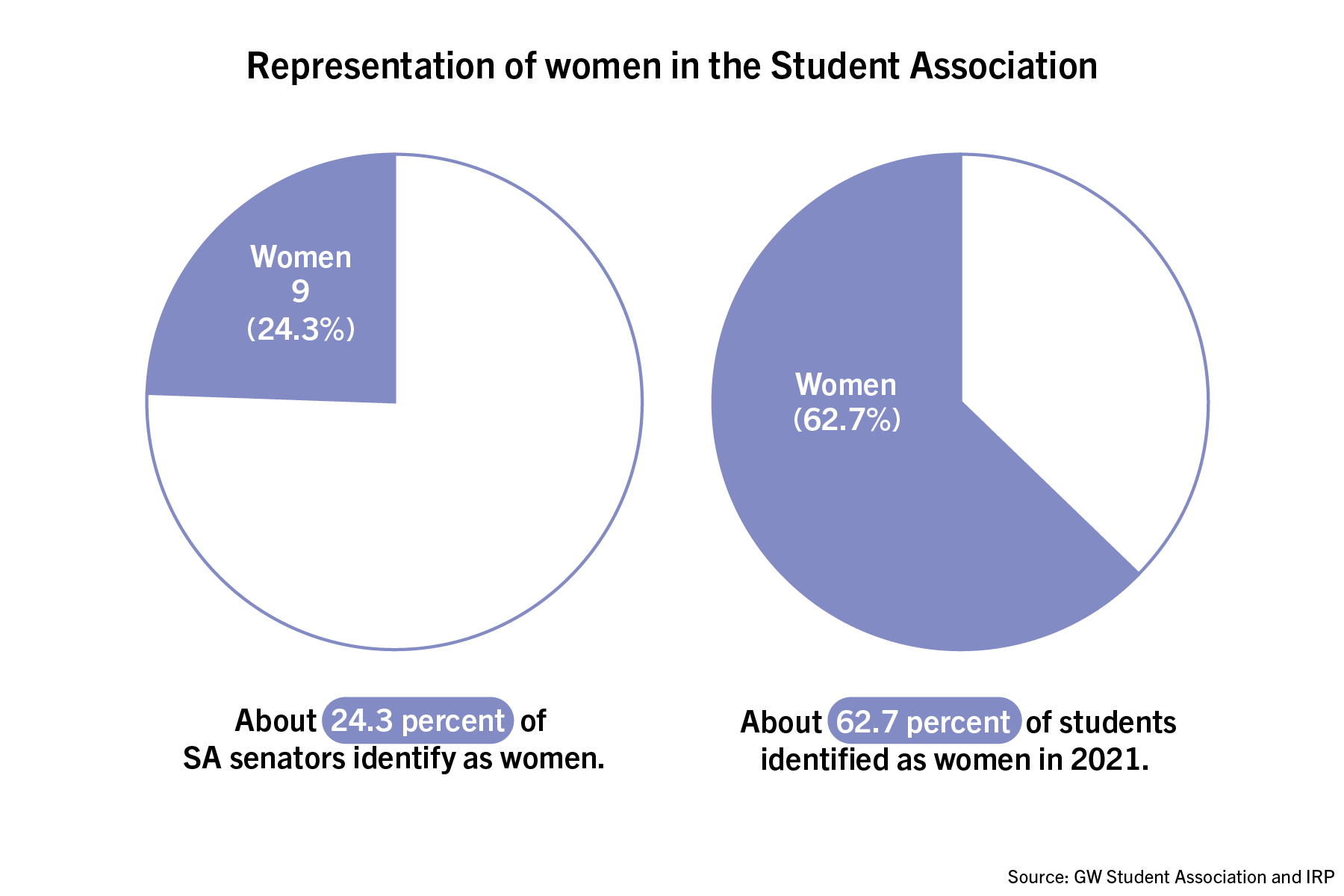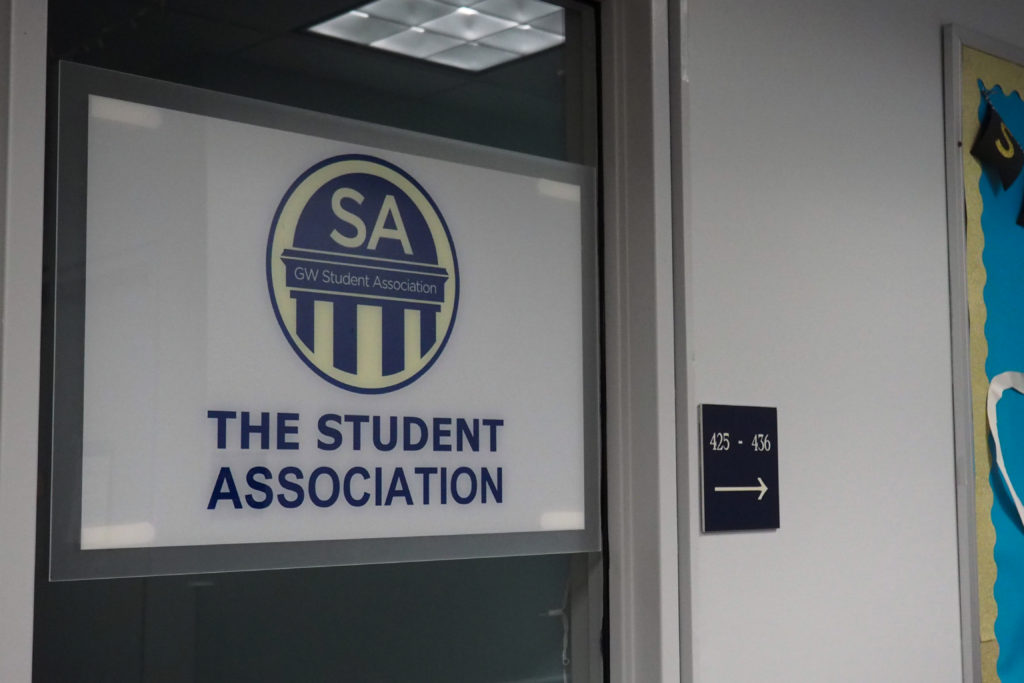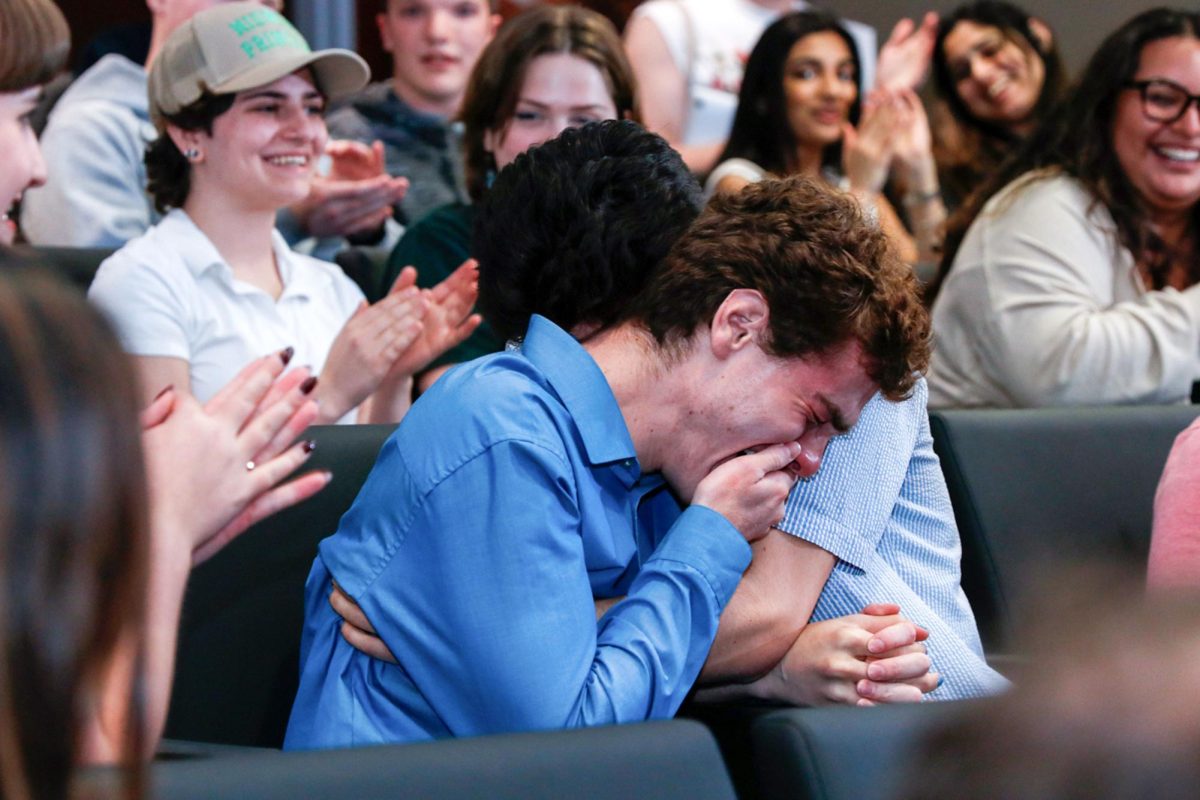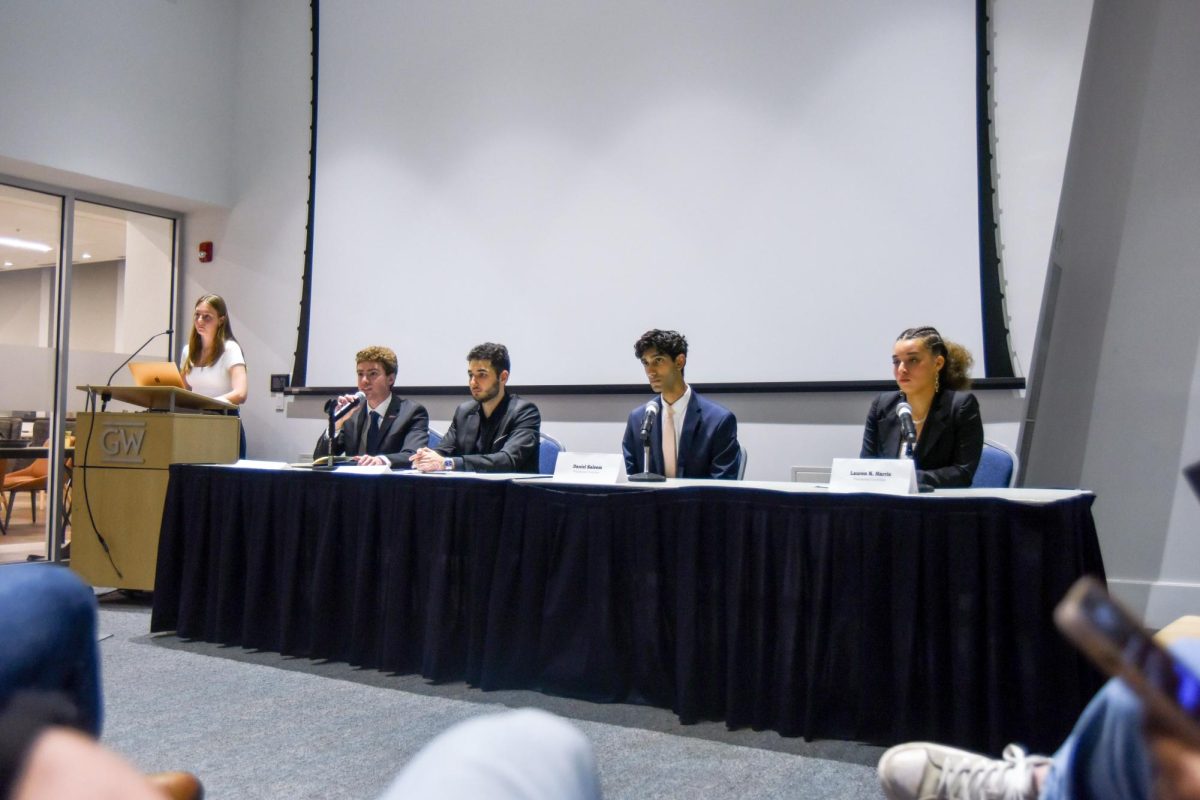Updated: Aug. 22, 2022 at 12:54 p.m.
The Student Association’s leadership has become more diverse during the past decade, but the SA Senate remains a predominately male body that some senators say fails to accurately represent the student population.
People of color have increasingly occupied the SA’s top leadership positions, where women have also maintained a consistent presence in the last 10 years. But gender diversity has lagged behind in the senate, where nine of this year’s 37 senators identify as female – a 24 percent composition compared to the entire University population that is 63 percent female, according to University enrollment data.
SA senators said they plan to reach out to student organizations to encourage people from marginalized groups, including women and racial minorities, to run and recruit a broader spectrum of student viewpoints.
Women in the SA
Within the last decade, 10 of the last 20 SA presidents and executive vice presidents have identified as female. But in the senate, only two of the six committee chairs identify as female. The senate plans to hold re-elections for chairs to give the 12 senators who filled vacancies this summer – among them, female students, students of color and nontraditional students like part-time students – a chance to run.

Nicholas Anastacio | Graphics Editor
SA Sen. Linsi Goodin, CCAS-G and the only female member of the SA’s governance and nominations committee, said the committee prioritizes merit, selecting the most qualified candidates instead of filling diversity quotas. She said the SA is predominantly male, but she thinks it “has not been an issue.”
“You can advertise, but you can’t exactly put an Instagram post, ‘We want you – women, international students specifically,’” she said. “We can talk about a diverse perspective as much as we want, but if people aren’t applying, then people just aren’t applying.”
Goodin said the governance and nominations committee was proud to nominate a female student of color for the full senate to consider, filling the GWSB-G seat earlier this month. She said the SA should continue to improve its communications to advertise its positions.
Goodin said an executive secretary for diversity, equity and inclusion could help bolster resources for promoting diversity within the executive administration.
“I think a lot of the controversy with the SA has overshadowed whatever good work we might have done or could do,” she said.
When the senate initially confirmed this year’s committee chairs on May 2, graduating senator Chris Pino, CCAS-U, said this year’s senate has the lowest percentage of female chairs in the last decade, “if not longer or forever.”
Racial diversity in SA leadership
Ashley Le, the first Asian woman to be SA president and an adjunct professor of media and public affairs, said her election showed that students were open and willing to electing a female president of color. Both she and her opponent Imani Ross were set to become the first female president of color, if elected during the 2018-19 SA election.
“Women are not always elevated into positions of leadership,” she said. “And I think that if we have the choice to do that, we should be able to do it.”
Le said the 2017-18 candidate pool provided representation for Black and Asian student communities, a significant achievement even if GW was, and is, predominantly white. The past three SA presidents have been Black men, dating back to Howie Brookins who was elected for the 2020-21 academic year. Before Brookins’ presidency, students had not elected a Black student as SA president in a decade.
She said her cabinet reached out to individual members of the Multicultural Student Services Center and student organizations, like the Interfaith Council, to encourage them to apply for the SA as part of recruitment efforts.
Le’s cabinet created positions for a director of international students and a director of interfaith engagement during her term. Last year’s director of interfaith engagement, Julia Kerrigan, hosted an interfaith week and coordinated off-campus transportation to worship sites while holding the position.
Le said eight of her nine cabinet members were female. She said she selected cabinet members based on merit and did not try to balance the cabinet’s gender ratio.
“People will say that, ‘OK, we have too many women, we have to balance it with men,’” she said. “We decided not to have that mentality.”
SA President Christian Zidouemba has yet to replace and confirm the at least seven cabinet members who resigned in early July. His current cabinet of four confirmed seats contains two female members.
Prior to her resignation this summer, former Chief of Staff Cordelia Scales said she planned to create a task force to work to prevent sexual assault on campus and advocate for victims. Keanu Rowe, the current chief of staff, did not respond to a request for comment on whether he was still creating the task force.
Looking forward
In 2018, the SA formed its diversity and inclusion assembly, a group of multicultural student leaders and SA Senators to share and respond to concerns on campus. The assembly has hosted town hall meetings in the wake of antisemitic and racist incidents on campus.
SA Sen. Henry Deng, CCAS-U and the chair of the SA’s diversity and inclusion assembly, said the DIA should continue working to solve campus-wide issues, following the lead of the executive cabinet’s initiative last year to put menstrual products in University bathrooms.
“I hope we can use the platform of DIA to connect students with different backgrounds together,” he said. “That includes working to do more events and improving our social media platform.”
The DIA hosted listening sessions throughout the 2019-20 school year, but its activity dropped off since then until this past spring.
After the senate elected Deng as the diversity and inclusion assembly chair in May, he remained the sole member of the body until mid-July, when he sponsored the DIA Reform Act to loosen the requirements to join the assembly. The DIA now has 10 members – five senators and five student leaders from organizations, like the International Students Association and the Pakistani Student Association.
Deng said the SA sometimes fails to engage with students due to confusion on how to communicate, so students may feel that their perspectives are being overlooked.
“I feel like we should have done much more in the previous years,” he said.
SA Sen. Lydia Miller, ESIA-U and the chair of the undergraduate student life committee, said her background as an international and female student pushed her to diversify the SA. She said she talked to female friends, many of them Eastern European students, who felt their voices lacked power on campus, especially compared to their male counterparts.
“They don’t think that their perspective is going to be taken as seriously, especially because they are girls,” she said.
Miller said the SA administration is improving upon its diversity in its new administration, which features international students and students of color, but the SA is not yet completely representative of the student body. She said connecting with the student population through outreach to student organizations will improve the SA’s relationship with diversity and inclusion and give the SA multiple perspectives on the issues students face.
“By going out to the student body rather than waiting for them to come to us to tell us their issues or their ideas, I kind of want to change the pace of that,” she said.
This post has been updated to correct the following:
The Hatchet reported SA President Christian Zidouemba did not return a request for comment. The Hatchet did not reach out to Zidouemba. We regret this error.








